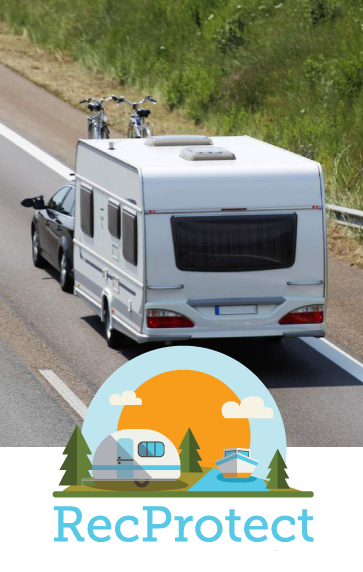In Alberta, there are a few things that trailer owners need to do before they are considered ‘street-legal.’ For one, all motor vehicles and trailers that travel on Alberta public roadways are required to be registered. In order to register a trailer, an individual (18 or older – or with the written consent of a guardian or a parent) must apply. All vehicles must be registered within three months of changing one’s primary address to Alberta.
But what about insurance? Do you need insurance on a trailer in Alberta? Alberta has a few trailer insurance requirements – namely, that any motorized vehicle, be it a car, a truck, a commercial van, or some other recreational vehicle, must be insured with a public liability insurance policy. It is illegal to operate a motorized vehicle on Alberta public roadways.
Read on for further information about trailer insurance in Alberta requirements.
How to Correctly Insure Your Alberta Trailer
Having the right insurance is vital to you and your passengers’ peace of mind, beyond the fact that it may be mandated. Is travel trailer insurance required in Alberta? In Alberta, non-motorized trailers – including travel trailers that are not self-propelled, utility trailers, toy haulers, etc. – are not required to be insured, unlike their motorized counterparts. That being said, it is still highly recommended that Albertan trailer owners carry coverage to fully protect their investment. Here is how to insure your Alberta trailer – motorized or not.
Note that, if you own a recreational vehicle that is self-propelled, then you are required to provide proof of valid Alberta travel trailer insurance when you register your vehicle. For travel trailers and vehicles being towed, you can technically purchase insurance whenever – but ideally when you first rent or buy the vehicle.
Trailers being towed may have coverage under your existing auto insurance, but this only applies to liability. Unfortunately, as soon as that trailer is no longer hitched to your vehicle, your auto insurance won’t cover it if anyone is injured in or around your trailer’s premises. You’ll also probably want to purchase coverage to ensure that your trailer is protected from potential damages, seeing as a trailer is a considerable investment. The coverage that your existing property and auto policies may offer is somewhat limited, so it’s advised you purchase a separate policy in most cases.
Coverage Types for Alberta Travel Trailer Insurance
Unless your trailer is a self-propelled recreational vehicle, there is no mandatory trailer insurance requirements for Alberta trailers. Coverage options include, but are not limited to:
- Travel Trailer Liability – If your vehicle is self-propelled, you’ll need to carry this coverage. This protects you from any expenses arising due to personal injury or damages to third parties.
- Comprehensive – This optional coverage protects your trailer from damages outside of collisions and accidents with stationary objects, such as vandalism, theft, hail, and fire.
- Collision – This optional coverage protects your trailer from damages as a result of an accident with another vehicle, the ground, or stationary object.
- Emergency Roadside – This coverage option provides protection for expenses arising due to an unexpected breakdown.
It’s worth noting that if you are leasing or renting your travel trailer, the company you are borrowing through may have coverage requirements. Third-party liability may be a bare minimum, as borrowing companies will want to protect their investment. You may be required to carry collision/comprehensive coverage, depending on who you are renting through.
Is Travel Trailer Insurance in Alberta Expensive?
Travel trailer insurance in Alberta will vary in cost, depending on how much coverage you purchase, the type/make of trailer you operate, etc. Self-propelled vehicles will be more expensive to insure for a few reasons, but price may go up based on a variety of factors.
Standalone policies may be more expensive than simply insuring your trailers under your car policy, but they will ensure that your trailer still has coverage while it is unhitched. In addition, separate policies will also protect your property and auto policies’ coverage from being depleted if you ever need to make a claim. Finally, self-propelled trailers require a standalone policy as a vehicle.
If you are concerned about cost, discuss your options with RecProtect’s expert trailer insurance brokers. We can help you find options for coverage in Alberta that will preserve your peace of mind – on the road and while your trailer is stationed.

